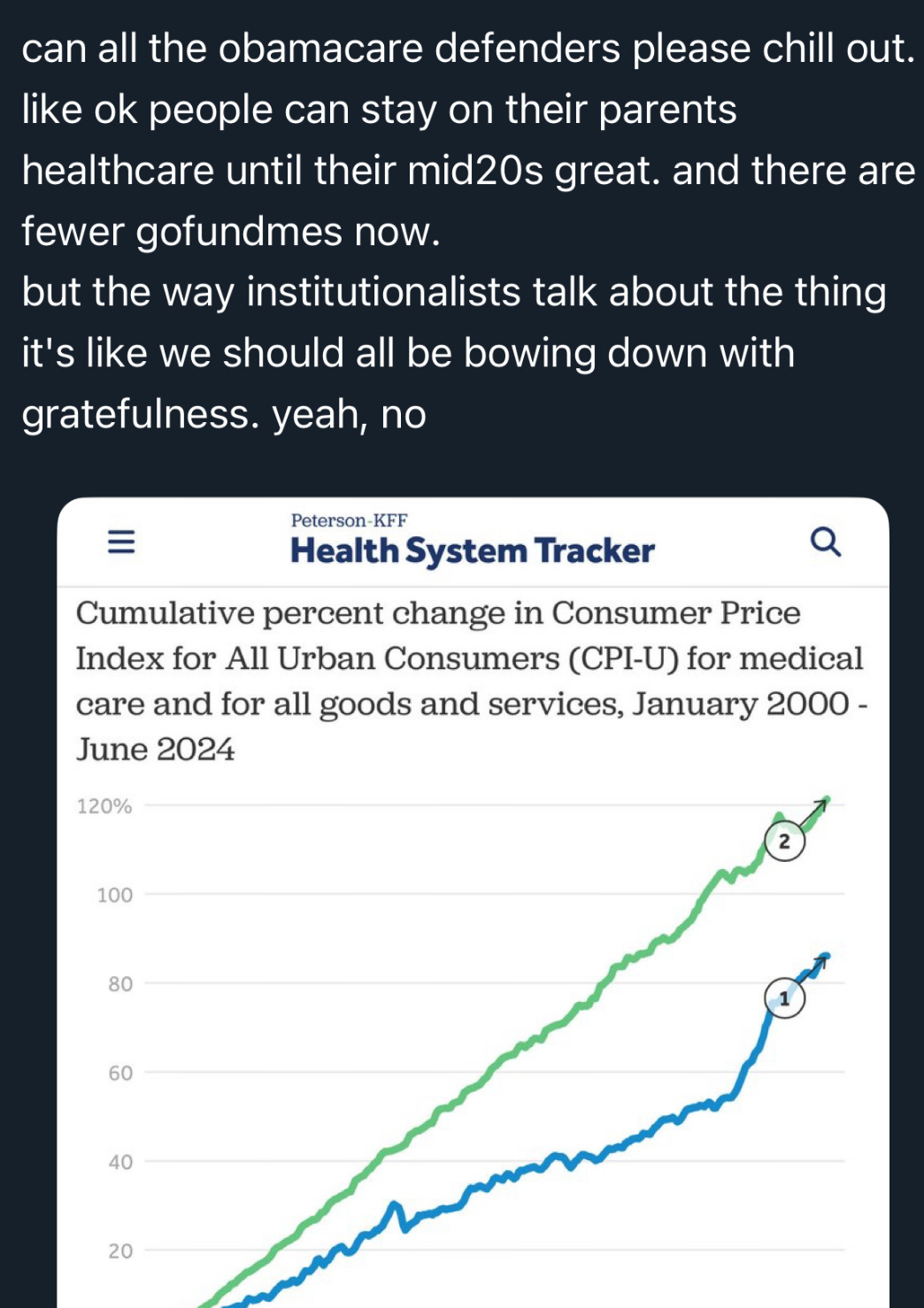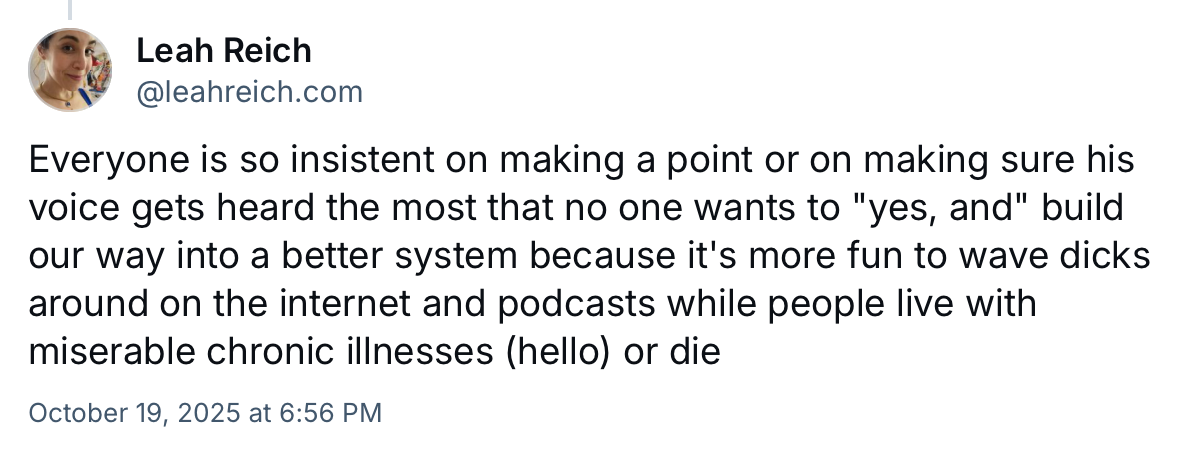Maybe Stop Being a Dick

About 15 years ago, I worked for a tiny little startup in the connected car space. The startup manufactured a little device that you could plug into your car's OBD2 port and use to connect to your phone. What, you may be asking, is an OBD2 port? Great question. As you probably know, modern cars have computers in them. Many, many computers. Honestly more computers than you imagine: Most modern cars have at least 30 to 50 Electronic Control Units (ECUs) in them, and luxury vehicles can have upwards of 200. Long gone are the days of cars built with entirely mechanical systems, and nearly long gone are the days of mechanics. The people you might pay to fix a car are (hopefully) highly trained service technicians, knowledgeable about these various computers and the systems they control.
Among these systems is a car's emission system, which is responsible for emissions as well as fuel metering (making sure the engine has the right proportion of fuel and air) and ignition. This system is monitored by a computer called the On-Board Diagnostics system, more familiarly known as the OBD2 (or OBD-II). The OBD2 is a car's self-diagnosing tool, at least when it comes to emissions-related problems. So the OBD2 port is the little opening that a service technician will use to stick a doohickey into so they can connect the car to a scanner. Then they scan the diagnostics system to do a smog check or to see if the computer sends back any codes that explain why the "check engine" light has lit up. Pretty neat!
When I joined this company, all I knew was that the company made a device a driver could stick in a port somewhere inside the car, and if the car's check engine light came on, the driver could clear the light on a phone. I didn't know what the light meant, or why you'd want to clear the light. There was a lot I didn't know, in fact. But as is often the case, being okay with not knowing something is a really useful place to start.
The other day, Sunday I think it was, I came home after a nice day out and was immediately aggravated by something on the internet. This is really my own fault. I know there's a very good chance something I see online or on social media will bother me, but I fire it up just the same, like constantly touching a hot stove to see if it is, in fact, as hot as it seems. Yes, idiot, it is.
The thing that aggravated me had nothing to do with connected cars or emissions systems. It was a screenshot of a tweet—I mean, that right there is half the problem—from an economics reporter at the New York Times. I do not know this young man, nor am I familiar with his work. I'm not an economics expert, and I have no interest in arguing economics or even in arguing with him. That's why I didn't include his name in the screenshot. While the tweet pissed me off, my reaction wasn't entirely about him or his tweet. At the end of the day, he's not the problem. He just provides a useful example.

At the connected car startup, I worked very closely with a trained service technician. He'd gone to four years of school and knew basically everything a person could learn about cars and car computers. His job was to be the technical expert on the car side so the technical experts on the app side could build the right thing. If there's a system malfunction, the OBD2 will throw out codes that indicate what the malfunction is, maybe a coolant temperature issue or an evaporative emissions problem. A service technician can scan these codes and then tell the car owner what the problem is. So the company's technician worked with the engineers to make sure the correct information showed up in the app, based on the codes that were reported by the OBD2. In the service technician's opinion, the correct information was everything he saw in the manual. Put all those codes and their definitions right in the app just the way they are, he said. Do you see what the problem with that might be?
Let's say you're a car owner. If there's a system malfunction in your car, what do you see in that situation? Maybe only one thing: Your car's check engine light.
The service technician and I spent hours arguing about what information we should put in the customer-facing app. I tried to convince him that using the technical language was a bad idea. He tried to convince me that the technically correct information is never a bad idea. I tried to convince him that most people have zero idea what the check engine light even means. He tried to convince me that it's a known fact the check engine light is an indicator there's a problem with your emissions system, and nothing more serious than that. We stayed that way for weeks, an immovable object and an unstoppable force, at loggerheads. Then I came up with a plan.
One day, I parked a car on the street in front of our office. I asked the service technician to sit in the back seat. I was in the passenger seat. I had invited six drivers—all strangers—to participate in research with us, and one by one they sat in the driver's seat. The first thing I did with each person, before anyone even pulled out a phone, was to ask them questions about their relationship with their car. What kind of car was it? When had they gotten it? Was it their first car? What purpose did it serve for them? How often did they use it? What would happen if they lost access to their car? What was stressful about owning a car? What was good about it?
After a bit of conversation, I got to the question I most wanted the guy in the back seat to hear: Let's say you're driving down the highway and your car's check engine light comes on. What's your immediate reaction? Answers ranged from "Should I pull over immediately?" to "Oh no is this going to cost me $1000?" to "Oh my god, am I about to die?"
The service technician was floored. I could see him in the back seat, absolutely agog at the reactions from all these normies. To him, the check engine light was the notification of a simple emissions system error. To them, a harbinger of an expensive and fiery death while hurtling down a highway at 70 miles per hour. And that's before I showed them the app and asked them to carefully read the instructions, at which point nearly all of them swiped through the screens at top speed without reading and went straight to getting confused about how and why to clear the check engine light.
At the end of the day, he ran back into the office and shouted, "PEOPLE HAVE NO IDEA HOW CARS WORK, YOU GUYS." This one revelation opened the door for him to understand that everything he thought was obvious was like mystical, arcane knowledge to the vast majority of drivers. Their relationship with the concept of "car" was wholly different from his, and as an expert, he would be better able to help them if he could bridge the gap between his knowledge and their lived experience. He was ready to translate his technical language into language more people could understand. Everything he spent all day thinking about? Most people never thought about it. You have to know your audience.
Which brings us back to the ACA tweet. It was dismissive and obnoxious, based on the enormous and faulty assumption that everyone who sees this information will understand the broader economic point that seems so obvious to the writer. It was the kind of thing a young healthy economics expert could easily say, without thinking about the ways other people might engage with the ACA. More importantly, it was the sort of post that's built for social media: Jokey, reductionist, rage bait-y, polarizing. No nuance, no consideration of emotional impact, just a compact little partial-fact grenade tossed out like so many others. It was somewhat clear from his replies to other angry people that his broader point was supposedly: Even if it helped people, it's still a hugely flawed piece of legislation. Which is true, but I don't think anyone with even moderate levels of critical thinking could have deduced this from his original tweet.
My immediate reaction was supreme annoyance mixed with anger. The anger, I quickly realized, was based largely in fear. Do I think the ACA is a sacred cow? No, but I sure am grateful for the protections it provides, and as someone who deals with significant chronic illness, I am constantly worried about what kind of health insurance I will have in the coming years. Health feels precarious enough in this country without having to imagine the days before the ACA, when pre-existing conditions or a gap in coverage could doom you forever. There is so much we have to worry about right now and so much at risk, so publicly pissing on people's protectiveness of legislation isn't helpful, as imperfect as that legislation may be. While I was all fired up, I posted this on Bluesky.

Look. Dick swinging is nothing new. Humans have swung their dicks at each other for millennia. There are countless examples throughout history of one thinker absolutely roasting another, or of one writer mercilessly dunking in column or letter form. I am not a technological determinist. I don't think social media has created this problem. But I do think social media has exacerbated it. In fact, it's because I'm not a technological determinist that I think harmful social media and the modern internet took hold so quickly: Like I've said before, the technology we use taps in to our worst behaviors. It takes those behaviors and feeds them right back to us, over and over. That's why it's so successful. Think of it like cocaine or billions of dollars: They don't turn you into an asshole, they just allow your true self to emerge.
Social media is not built for nuance. The modern internet was not really built for the thoughtful exchange of ideas. What happens if you knock down the traditional gate-keepers and let everyone have a voice, but don't also provide the tools, social cues, or structure to navigate that experience? The loudest people are heard, or the most persistent, or the people best suited to the media and visibility boosting mechanisms of the era. It's megaphones all the way down.
That's also why, as crazy as I feel saying it, I still believe we can do something to change this. As human beings, I think we've always struggled in some way or other with the worst behaviors that plague us now. This nasty selfishness and entitlement, the harmful echo chambers and bubbles, the lack of consideration for others in every sphere of existence: These are elements of human nature on steroids. 2025 isn't a stupid timeline, it's an eruption of global emotional roid rage. Unfortunately, part of the antidote–the part we have some control over, anyway—is making better choices as human beings.
Which is funny, because when a sweet Gen Z friend asked me what I thought about her starting a newsletter on Substack, I found it harder to advise her than I anticipated. But let's talk about that next week.
Until next Wednesday!
Lx
Leah Reich | Meets Most Newsletter
Join the newsletter to receive the latest updates in your inbox.
